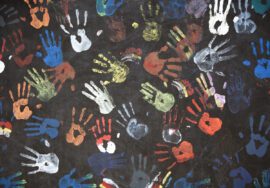
Mental Health Resources for Survivors: Highlight Available Mental Health Resources and Support Networks for Those Affected by Crisis Situations
Mental health is a crucial component of recovery for survivors of crisis situations. Access to appropriate resources and support networks can significantly impact their journey toward healing and resilience. This blog aims to highlight various mental health resources available to survivors, offering valuable information and guidance.
Understanding the Impact of Crisis on Mental Health
Survivors of domestic violence, abuse, or other crisis situations often face significant mental health challenges. According to the World Health Organization (WHO), approximately 1 in 3 women worldwide have experienced physical and/or sexual intimate partner violence or non-partner sexual violence in their lifetime. The psychological impact of such trauma can lead to anxiety, depression, PTSD, and other mental health disorders.
Key Mental Health Resources for Survivors
- Therapy and Counseling Services
- Individual Therapy: Personalized therapy sessions with licensed professionals can help survivors process trauma and develop coping strategies.
- Group Therapy: Sharing experiences in a supportive group setting can foster a sense of community and reduce feelings of isolation.
- Online Counseling: Platforms like BetterHelp and Talkspace offer convenient access to mental health professionals via virtual sessions.
- Individual Therapy: Personalized therapy sessions with licensed professionals can help survivors process trauma and develop coping strategies.
- Crisis Hotlines and Helplines
- National Domestic Violence Hotline: Available 24/7, this hotline provides immediate support and connects survivors with local resources. (1-800-799-7233)
- Crisis Text Line: Text HOME to 741741 for free, 24/7 crisis counseling via text message.
- National Domestic Violence Hotline: Available 24/7, this hotline provides immediate support and connects survivors with local resources. (1-800-799-7233)
- Support Groups and Community Resources
- Local Support Groups: Many communities offer support groups specifically for survivors, facilitated by trained professionals.
- Community Mental Health Centers: These centers provide a range of services, including therapy, medication management, and support groups.
- Local Support Groups: Many communities offer support groups specifically for survivors, facilitated by trained professionals.
- Online Resources and Forums
- RAINN (Rape, Abuse & Incest National Network): The nation’s largest anti-sexual violence organization offers resources, support, and an online hotline.
- Mental Health America (MHA): Provides a wealth of information on mental health conditions, treatments, and local resources.
- RAINN (Rape, Abuse & Incest National Network): The nation’s largest anti-sexual violence organization offers resources, support, and an online hotline.
The Role of Support Networks
Support networks play a vital role in the recovery process for survivors. These networks can include family, friends, and community organizations that provide emotional support, practical assistance, and encouragement. Building a strong support network can help survivors feel less alone and more empowered to navigate their healing journey.
Statistics on the Importance of Mental Health Support
- National Institute of Mental Health (NIMH): Reports that nearly 50% of all lifetime mental illnesses begin by age 14, and 75% by age 24, underscoring the need for early intervention and support.
- American Psychological Association (APA): Research indicates that social support can significantly enhance mental health outcomes, reducing symptoms of depression and anxiety among survivors.
Accessing mental health resources and building a robust support network are essential steps for survivors of crisis situations. By leveraging available resources, survivors can embark on a path of healing and resilience, reclaiming their lives with renewed strength and hope. For more information and assistance, reach out to local mental health professionals, support groups, and crisis hotlines like Thompson Crisis Centre








